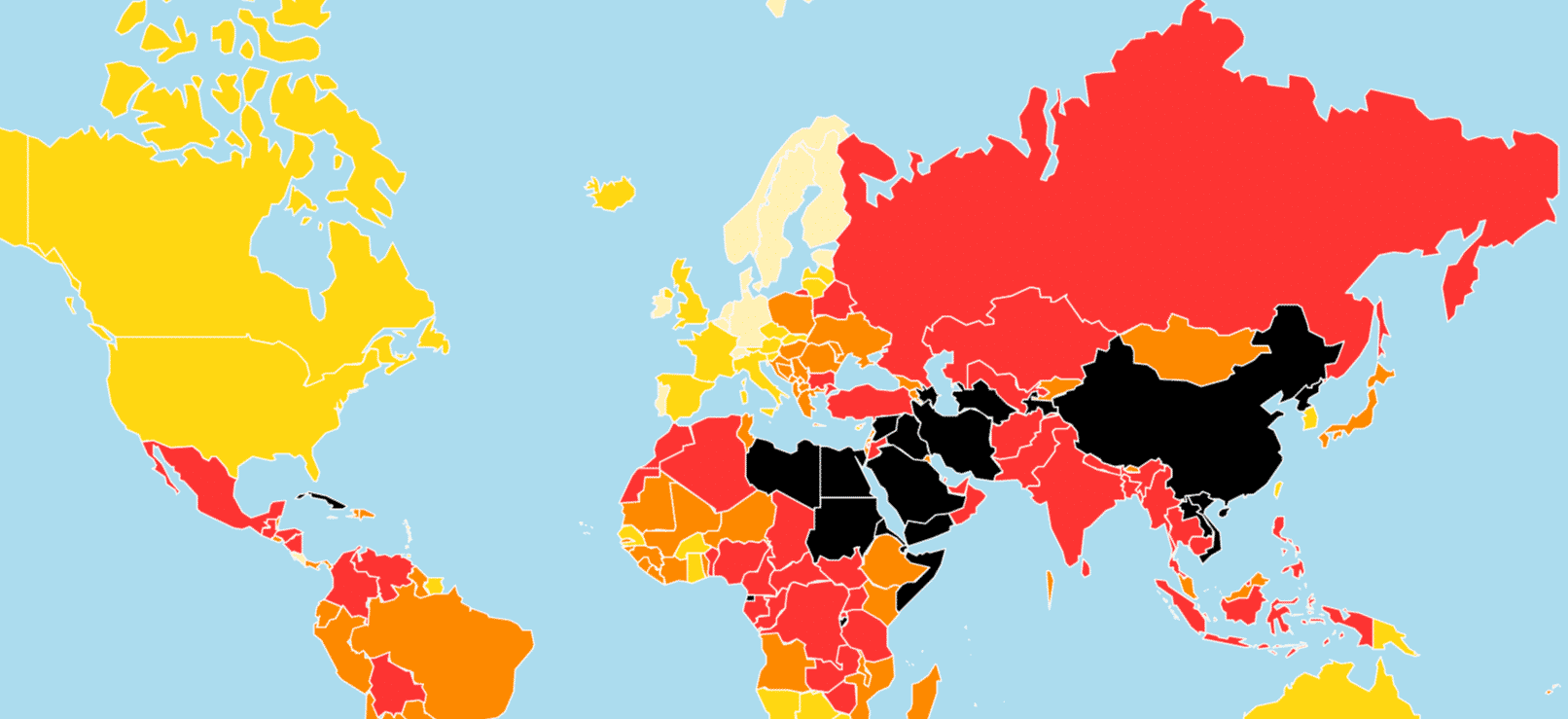Angola has improved, for the third consecutive year, in the Index on Press Freedom that is produced annually by the International Reporters Without Borders Organization. In 2020, Angola climbed 3 places, ranking 106 (out of 180). It should be noted that the increase over the last three years is significant, moving from 125 in 2017, categorised as ‘red’ (difficult situation), to their current place at 106.
It has been emphasised that the recognition of the improvements in Angola in the scope of Freedom of the Press has occurred in an unfavourable context for press freedom in the world today. According to Reporters Without Borders, there are significant setbacks in Africa due to the increase in prolonged arbitrary arrests of journalists and censorship of the Internet. This situation also occurs in countries such as the United States of America, Brazil, some countries in the European Union, Asia, the Pacific and Australia.
In terms of Portuguese-speaking African countries, Angola was the only country that rose in the ranking, with Guinea-Bissau losing 5 places, Mozambique 1, Cape Verde maintaining its position and no data available on São Tomé.
These advances are mainly due to the increase in the plurality of the press organs registered in recent years, greater openness, independence and transparency, and lack of registration of cases of prolonged detentions of journalists, among others.
Several international institutions and other states have publicly acknowledged the advances in the field of Human Rights in Angola, for example, during the adoption of the Angola report for the Universal Periodic Review (UPR) in the Human Rights Council.
Recently, a National Human Rights Strategy was approved, a guiding document that aims to frame the performance of the Government of Angola within the scope of Human Rights, with reference to the National Development Plan 2018-2022. The Strategy is based on the legal basis of the Constitution of the Republic of Angola (CRA) and the International Treaties ratified by Angola, namely the 1948 Universal Declaration of Human Rights and the 1986 African Charter on Human and Peoples' Rights, and the commitments of Angola for the election to be a member of the Human Rights Council. In this context, Freedom of Expression is also framed as a Human Right and Fundamental Freedom.
https://rsf.org/en/ranking
Angola improves its ranking by 3 places in Reporters without Borders’ Press Freedom ranking
